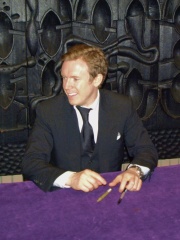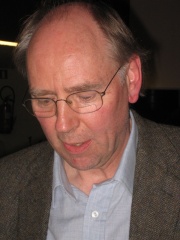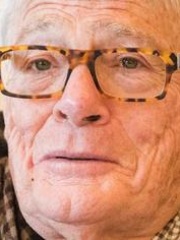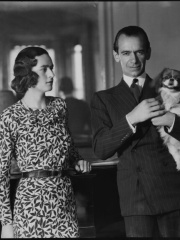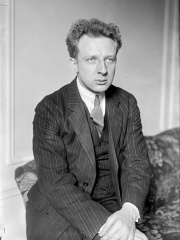
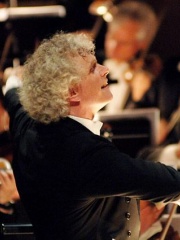
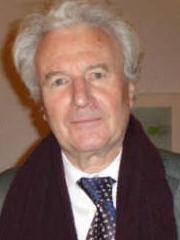
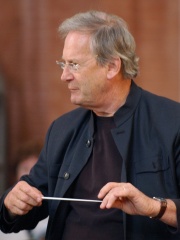
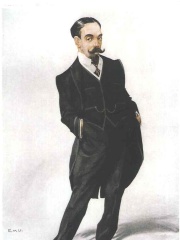
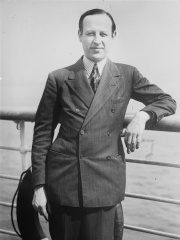
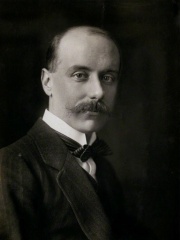

The Most Famous
CONDUCTORS from United Kingdom
This page contains a list of the greatest British Conductors. The pantheon dataset contains 128 Conductors, 16 of which were born in United Kingdom. This makes United Kingdom the birth place of the most number of Conductors.
Top 10
The following people are considered by Pantheon to be the top 10 most legendary British Conductors of all time. This list of famous British Conductors is sorted by HPI (Historical Popularity Index), a metric that aggregates information on a biography's online popularity. Visit the rankings page to view the entire list of British Conductors.

1. Leopold Stokowski (1882 - 1977)
With an HPI of 65.80, Leopold Stokowski is the most famous British Conductor. His biography has been translated into 38 different languages on wikipedia.
Leopold Anthony Stokowski (UK: stə-KOF-skee, US: stə-KAWF-skee, stə-KOW-skee; 18 April 1882 – 13 September 1977) was a British conductor. One of the leading conductors of the early and mid-20th century, he is best known for his long association with the Philadelphia Orchestra. He was especially noted for his free-hand conducting style that spurned the traditional baton and for obtaining a characteristic sound from the orchestras he directed. Stokowski was music director of the Cincinnati Symphony Orchestra, the Philadelphia Orchestra, the NBC Symphony Orchestra, New York Philharmonic Orchestra, the Houston Symphony Orchestra, the Symphony of the Air and many others. He was also the founder of the All-American Youth Orchestra, the New York City Symphony, the Hollywood Bowl Symphony Orchestra and the American Symphony Orchestra. Stokowski conducted the music for and appeared in several Hollywood films, most notably Disney's Fantasia, and was a lifelong champion of contemporary composers, giving many premieres of new music during his 60-year conducting career. Stokowski, who made his official conducting debut in 1909, appeared in public for the last time in 1975 but continued making recordings until June 1977, a few months before his death at the age of 95.

2. Simon Rattle (b. 1955)
With an HPI of 64.38, Simon Rattle is the 2nd most famous British Conductor. His biography has been translated into 36 different languages.
Sir Simon Denis Rattle (born 19 January 1955) is a British conductor. He rose to international prominence during the 1980s and 1990s, while music director of the City of Birmingham Symphony Orchestra (1980–1998). Rattle was principal conductor of the Berlin Philharmonic from 2002 to 2018, and music director of the London Symphony Orchestra from 2017 to 2023. He has been chief conductor of Bavarian Radio Symphony Orchestra since September 2023. Among the world's leading conductors, in a 2015 Bachtrack poll, he was ranked by music critics as one of the world's best living conductors. Rattle is also the patron of Birmingham Schools' Symphony Orchestra, arranged during his tenure with CBSO in the mid-1990s. The Youth Orchestra is now under the auspices of charitable business Services for Education. He received the Brit Award for Outstanding Contribution to Music in 2001 at the Classic Brit Awards.

3. Colin Davis (1927 - 2013)
With an HPI of 63.31, Colin Davis is the 3rd most famous British Conductor. His biography has been translated into 30 different languages.
Sir Colin Rex Davis (25 September 1927 – 14 April 2013) was an English conductor, known for his association with the London Symphony Orchestra, having first conducted it in 1959. His repertoire was broad, but among the composers with whom he was particularly associated were Mozart, Berlioz, Elgar, Sibelius, Stravinsky and Tippett. Davis studied as a clarinetist, but was intent on becoming a conductor. After struggling as a freelance conductor from 1949 to 1957, he gained a series of appointments with orchestras including the BBC Scottish Orchestra, the BBC Symphony Orchestra and the Bavarian Radio Symphony Orchestra. He also held the musical directorships of Sadler's Wells Opera and the Royal Opera House, where he was principal conductor for over fifteen years. His guest conductorships included the Boston Symphony Orchestra, the New York Philharmonic and the Staatskapelle Dresden, among many others. As a teacher, Davis held posts at the Royal Academy of Music, London, and the Landesgymnasium für Musik "Carl Maria von Weber" (preparatory school for music) in Dresden. He made his first gramophone recordings in 1958, and his discography over the next five decades was extensive, with many studio recordings for Philips Records and a substantial catalogue of live recordings for the London Symphony Orchestra's own label.

4. John Eliot Gardiner (b. 1943)
With an HPI of 62.90, John Eliot Gardiner is the 4th most famous British Conductor. His biography has been translated into 27 different languages.
Sir John Eliot Gardiner (born 20 April 1943) is an English conductor, particularly known for his performances of the works of Johann Sebastian Bach, especially the Bach Cantata Pilgrimage of 2000, performing Bach's church cantatas in liturgical order in churches all over Europe, and New York City, with the Monteverdi Choir, and recording them at the locations.
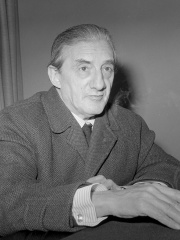
5. John Barbirolli (1899 - 1970)
With an HPI of 62.73, John Barbirolli is the 5th most famous British Conductor. His biography has been translated into 27 different languages.
Sir John Barbirolli (né Giovanni Battista Barbirolli; 2 December 1899 – 29 July 1970) was a British conductor and cellist. He is remembered above all as conductor of the Hallé Orchestra in Manchester, which he helped save from dissolution in 1943 and conducted for the rest of his life. Earlier in his career he was Arturo Toscanini's successor as music director of the New York Philharmonic, serving from 1936 to 1943. He was also chief conductor of the Houston Symphony from 1961 to 1967, and was a guest conductor of many other orchestras, including the BBC Symphony Orchestra, London Symphony Orchestra, the Philharmonia, the Berlin Philharmonic and the Vienna Philharmonic, with all of which he made recordings. Born in London of Italian and French parentage, Barbirolli grew up in a family of professional musicians. After starting out as a cellist, he was given the chance to conduct, from 1926 with the British National Opera Company, and then with Covent Garden's touring company. On taking up the conductorship of the Hallé he had less opportunity to work in the opera house, but in the 1950s he conducted productions of works by Verdi, Wagner, Gluck, and Puccini at Covent Garden with such success that he was invited to become the company's permanent musical director, an invitation he declined. Late in his career he made several recordings of operas, of which his 1967 set of Puccini's Madama Butterfly for EMI is probably the best known. Both in the concert hall and on record, Barbirolli was particularly associated with the music of English composers such as Elgar, Delius and Vaughan Williams. His interpretations of other late Romantic composers, such as Mahler and Sibelius, as well as of earlier classical composers, including Schubert, are also still admired.

6. Thomas Beecham (1879 - 1961)
With an HPI of 62.65, Thomas Beecham is the 6th most famous British Conductor. His biography has been translated into 36 different languages.
Sir Thomas Beecham, 2nd Baronet, (29 April 1879 – 8 March 1961) was an English conductor and impresario best known for his association with the London Philharmonic and the Royal Philharmonic orchestras. He was also closely associated with the Liverpool Philharmonic and Hallé orchestras. From the early 20th century until his death, Beecham was a major influence on the musical life of Britain and, according to the BBC, was Britain's first international conductor. Born to a rich industrial family, Beecham began his career as a conductor in 1899. He used his access to the family fortune to finance opera from the 1910s until the start of the Second World War, staging seasons at Covent Garden, Drury Lane and His Majesty's Theatre with international stars, his own orchestra and a wide repertoire. Among the works he introduced to England were Richard Strauss's Elektra, Salome and Der Rosenkavalier and three operas by Frederick Delius. Together with his younger colleague Malcolm Sargent, Beecham founded the London Philharmonic, and he conducted its first performance at the Queen's Hall in 1932. In the 1940s he worked for three years in the United States, where he was music director of the Seattle Symphony and conducted at the Metropolitan Opera. After his return to Britain, he founded the Royal Philharmonic in 1946 and conducted it until his death in 1961. Beecham's repertoire was eclectic, sometimes favouring lesser-known composers over famous ones. His specialities included composers whose works were neglected in Britain before he became their advocate, such as Delius and Berlioz. Other composers with whose music he was frequently associated were Haydn, Schubert, Sibelius and the composer he revered above all others, Mozart.

7. Eugene Aynsley Goossens (1893 - 1962)
With an HPI of 60.52, Eugene Aynsley Goossens is the 7th most famous British Conductor. His biography has been translated into 16 different languages.
Sir Eugene Aynsley Goossens (; 26 May 1893 – 13 June 1962) was an English conductor and composer.

8. Adrian Boult (1889 - 1983)
With an HPI of 59.42, Adrian Boult is the 8th most famous British Conductor. His biography has been translated into 25 different languages.
Sir Adrian Cedric Boult, CH (; 8 April 1889 – 22 February 1983) was a British conductor. Brought up in a prosperous mercantile family, he followed musical studies in England and at Leipzig, Germany, with early conducting work in London for the Royal Opera House and Sergei Diaghilev's ballet company. His first prominent post was conductor of the City of Birmingham Orchestra in 1924. When the British Broadcasting Corporation appointed him director of music in 1930, he established the BBC Symphony Orchestra and became its chief conductor. The orchestra set standards of excellence that were rivalled in Britain only by the London Philharmonic Orchestra (LPO), founded two years later. Forced to leave the BBC in 1950 on reaching retirement age, Boult became principal conductor of the London Philharmonic Orchestra. The orchestra had declined from its peak of the 1930s, but under his guidance its fortunes were revived. He retired as its chief conductor in 1957, and later accepted the post of president. Although in the latter part of his career he worked with several other orchestras, including the London Symphony Orchestra, the Philharmonia Orchestra, the Royal Philharmonic Orchestra, and his former orchestra, the BBC Symphony, it was the LPO with which he was primarily associated, conducting it in concerts and recordings until 1978, in what was widely called his "Indian summer". Boult was known for his championing of British music. He gave the first performance of his friend Gustav Holst's The Planets, and introduced new works by, among others, Elgar, Bliss, Britten, Delius, Rootham, Tippett, Vaughan Williams and Walton. In his BBC years, he introduced works by foreign composers, including Bartók, Berg, Stravinsky, Schoenberg and Webern. A modest man who disliked the limelight, Boult felt as comfortable in the recording studio as on the concert platform, making recordings throughout his career. From the mid-1960s until his retirement after his last sessions in 1978 he recorded extensively for EMI. In addition to several recordings that have remained in the active catalogue, Boult's legacy includes his influence on prominent conductors of later generations, including Sir Colin Davis and Vernon Handley.

9. Henry Wood (1869 - 1944)
With an HPI of 58.98, Henry Wood is the 9th most famous British Conductor. His biography has been translated into 27 different languages.
Sir Henry Joseph Wood (3 March 1869 – 19 August 1944) was an English conductor best known for his association with London's annual series of promenade concerts, known as the Proms. He conducted them for nearly half a century, introducing hundreds of new works to British audiences. After his death, the concerts were officially renamed in his honour as the "Henry Wood Promenade Concerts", although they continued to be generally referred to as "the Proms". Born in modest circumstances to parents who encouraged his musical talent, Wood started his career as an organist. During his studies at the Royal Academy of Music, he came under the influence of the voice teacher Manuel García and became his accompanist. After similar work for Richard D'Oyly Carte's opera companies on the works of Arthur Sullivan and others, Wood became the conductor of a small operatic touring company. He was soon engaged by the larger Carl Rosa Opera Company. One notable event in his operatic career was conducting the British premiere of Tchaikovsky's Eugene Onegin in 1892. From the mid-1890s until his death, Wood focused on concert conducting. He was engaged by the impresario Robert Newman to conduct a series of promenade concerts at the Queen's Hall, offering a mixture of classical and popular music at low prices. The series was successful, and Wood conducted annual promenade series until his death in 1944. By the 1920s, Wood had steered the repertoire entirely to classical music. When the Queen's Hall was destroyed by bombing in 1941, the Proms moved to the Royal Albert Hall. Wood declined the chief conductorships of the New York Philharmonic and Boston Symphony Orchestras, believing it his duty to serve music in the United Kingdom. In addition to the Proms, he conducted concerts and festivals throughout the country and also trained the student orchestra at the Royal Academy of Music. He had an enormous influence on the musical life of Britain over his long career: he and Newman greatly improved access to classical music, and Wood raised the standard of orchestral playing and nurtured the taste of the public, presenting a vast repertoire of music spanning four centuries.
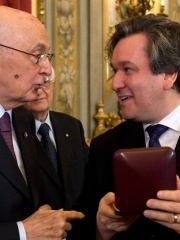
10. Antonio Pappano (b. 1959)
With an HPI of 58.23, Antonio Pappano is the 10th most famous British Conductor. His biography has been translated into 21 different languages.
Sir Antonio Pappano (born 30 December 1959) is an English-Italian conductor and pianist. Between 2002 and 2024, he was the longest-serving music director of the Royal Opera House. Since 2024, he has served as chief conductor of the London Symphony Orchestra.
People
Pantheon has 16 people classified as British conductors born between 1869 and 1975. Of these 16, 5 (31.25%) of them are still alive today. The most famous living British conductors include Simon Rattle, John Eliot Gardiner, and Antonio Pappano. The most famous deceased British conductors include Leopold Stokowski, Colin Davis, and John Barbirolli.
Living British Conductors
Go to all RankingsSimon Rattle
1955 - Present
HPI: 64.38
John Eliot Gardiner
1943 - Present
HPI: 62.90
Antonio Pappano
1959 - Present
HPI: 58.23
Daniel Harding
1975 - Present
HPI: 54.83
Andrew Parrott
1947 - Present
HPI: 49.01
Deceased British Conductors
Go to all RankingsLeopold Stokowski
1882 - 1977
HPI: 65.80
Colin Davis
1927 - 2013
HPI: 63.31
John Barbirolli
1899 - 1970
HPI: 62.73
Thomas Beecham
1879 - 1961
HPI: 62.65
Eugene Aynsley Goossens
1893 - 1962
HPI: 60.52
Adrian Boult
1889 - 1983
HPI: 59.42
Henry Wood
1869 - 1944
HPI: 58.98
Jeffrey Tate
1943 - 2017
HPI: 53.30
Malcolm Sargent
1895 - 1967
HPI: 53.29
Raymond Leppard
1927 - 2019
HPI: 52.61
John Pritchard
1921 - 1989
HPI: 52.57
Overlapping Lives
Which Conductors were alive at the same time? This visualization shows the lifespans of the 11 most globally memorable Conductors since 1700.

